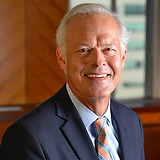“The American community is today, as it has long been, a rich mosaic of religious faiths.” So writes Supreme Court Justice Elena Kagan. Religious pluralism is a fact not only in our country as a whole, but in our workplaces as well. This growing pluralism also includes growing numbers of people who identify with no religion, particularly within the next generations coming into the workforce. Demographic data shows this fact of pluralism:
- 18% no religion
- 48.9% Protestantism
- 23% Catholicism
- 1.8% Mormonism
- 2.1% Judaism
- 0.8% Islam
- 2.5% other non-Christian
- 2.7% unknown.
When it comes to today’s American workplaces, religious pluralism is sometimes not on the management radar screen because it is, well, both seen and unseen. Employee’s beliefs may or may not manifest in actions or practices at work. Still, the “rich mosaic” of faiths and non-faith exists in people’s lives and can influence workplace culture.
When it comes to law and religion, the Supreme Court itself has admitted that its own decisions have not given us consistent rules of law to work with. It may help us navigate what the Court recently called this “vexing” area if we remember five key concepts:
- Pluralism
- Coercion
- Hostility
- Reasonable accommodations
- Undue burden
Pluralism is the reality that religious liberty in America involves not only our own religious choices but those of others.
Coercion is a legal test gaining ground in Supreme Court religion case decisions. Context is key. Do the facts of this case and its context suggest that the government, or state actor, or employer or others are being coercive: i.e. depriving someone of free religious exercise?
Hostility is a form of coercion. Workplace words or actions that show hostility towards another’s religion disrupt workplace culture and can lead to cases and controversies. While differing viewpoints are part of religious freedom, hostility and coercion cross the line. Hostility was cited by Justice Kennedy in the Masterpiece Cakeshop case in striking down the actions of a state administrative agency in Colorado that expressed hostility to the Cakeshop owner’s religion.
Reasonable accommodation and undue burden. The idea here is that employers and others need to reasonably accommodate an employee’s religious practices unless doing so would cause an undue burden on the employer. This is a balancing test that seeks to balance the religion interests of the employee with the legitimate interests of the employer.
While these five concepts won’t guarantee domestic tranquility in divided times, it may help to keep them in mind for today’s workplace.

